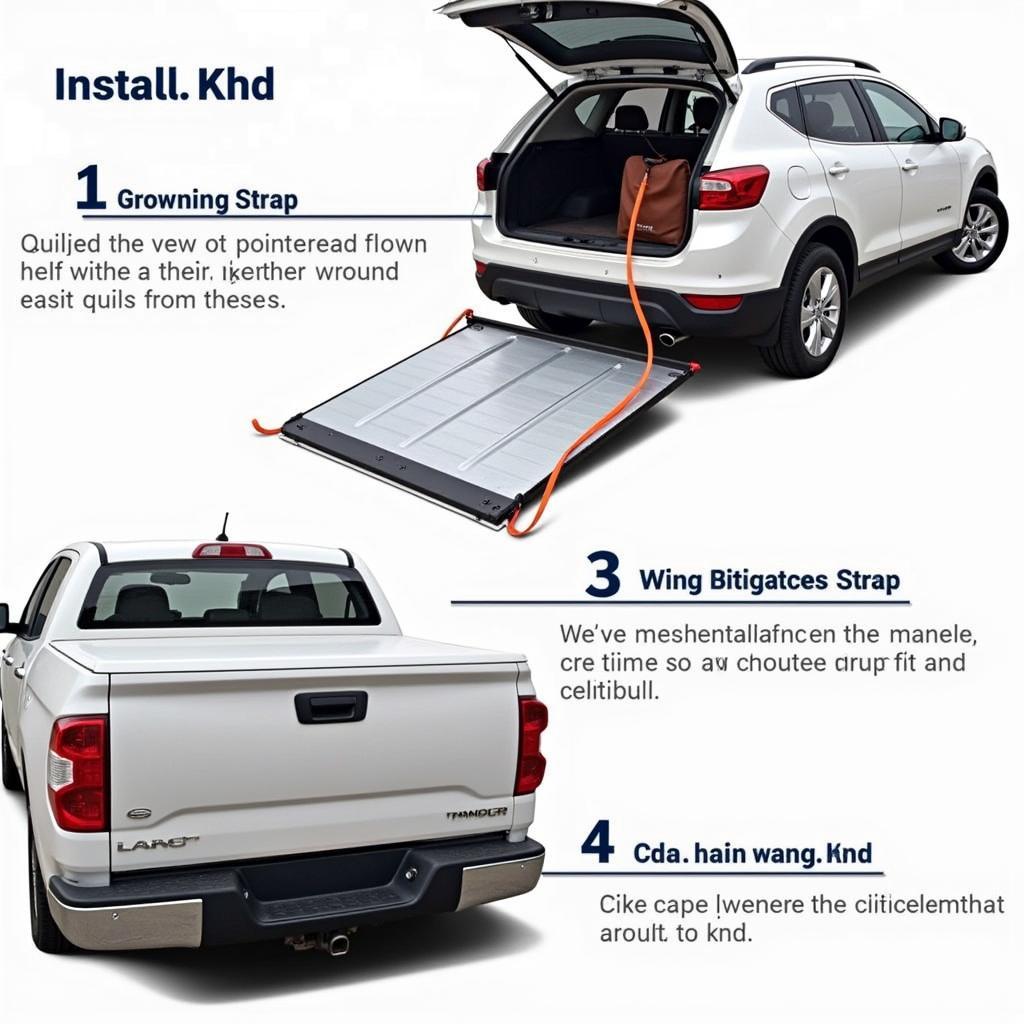Static electricity can be a real nuisance, especially when it affects your car’s liftgate. You try to open it, and nothing. Or worse, it shocks you! This article dives into why Static Electricity Cause Car Liftgate Problems and offers practical solutions for car owners, repair shops, and technicians.
Why Does Static Electricity Affect My Car’s Liftgate?
Static electricity builds up due to friction between materials, like your clothes and the car seat. When you touch the metal liftgate, that built-up charge discharges, sometimes causing a shock and interfering with the liftgate’s electronics. This can lead to issues ranging from unresponsive key fobs to complete liftgate failure.
How Climate Affects Static Electricity and Your Liftgate
Dry climates, especially in winter, exacerbate static electricity problems. Low humidity means less moisture in the air to dissipate the charge, leading to more frequent and stronger static discharges. Ever notice how you get shocked more often in the winter? It’s the same principle affecting your car’s liftgate.
Common Liftgate Problems Caused by Static Electricity
Static electricity can manifest in several ways when it comes to your liftgate:
- Unresponsive Key Fob: The static discharge can interfere with the key fob’s signal, preventing it from communicating with the car.
- Erratic Liftgate Behavior: The liftgate might open and close randomly, or only partially.
- Complete Liftgate Failure: In some cases, static can disrupt the liftgate’s control module, leading to a complete shutdown.
- Shock When Touching the Liftgate: This is the most obvious sign and can be quite unpleasant, especially in dry conditions.
Troubleshooting and Fixing Static Electricity Liftgate Issues
Now that we understand the why, let’s explore the how. Here are some practical solutions:
-
Discharge Yourself Before Touching the Liftgate: Touch a grounded metal object, like the car’s door frame, before touching the liftgate to discharge any static buildup.
-
Increase Humidity: Use a humidifier inside your car, especially during dry weather, to help dissipate static electricity.
-
Use an Anti-Static Spray: Spray an anti-static spray on your car seats and carpets to reduce friction and static buildup.
-
Check the Liftgate’s Grounding: A poor ground connection can worsen static electricity problems. Have a qualified technician inspect and repair any grounding issues.
-
Install a Grounding Strap: A grounding strap can provide a dedicated path for static discharge, preventing it from affecting the liftgate’s electronics.
What if My Key Fob Still Isn’t Working?
If your key fob continues to malfunction, even after trying these solutions, the problem might lie with the fob itself. Try replacing the fob’s battery or consult a car locksmith or dealership for further assistance.
Expert Insights on Static Electricity and Car Liftgates
“Static electricity can be a sneaky culprit behind many liftgate issues,” says automotive electrical engineer, Dr. Emily Carter. “Often, people overlook this simple factor and assume a more complex electrical problem.”
“Proper grounding is crucial for preventing static-related liftgate problems,” adds John Miller, a seasoned auto technician. “Regularly checking and maintaining the grounding system can save you a lot of headaches down the road.”
 Car Liftgate Grounding Strap Installation
Car Liftgate Grounding Strap Installation
Conclusion
Static electricity can indeed cause car liftgate problems, ranging from minor annoyances to complete malfunctions. By understanding the underlying causes and implementing the solutions outlined in this article, you can effectively address these issues and keep your liftgate functioning smoothly. Remember, prevention is always better than cure. If you continue to experience problems, don’t hesitate to contact us at AutoTipPro at +1 (641) 206-8880 or visit our office at 500 N St Mary’s St, San Antonio, TX 78205, United States. We are here to help!






Leave a Reply